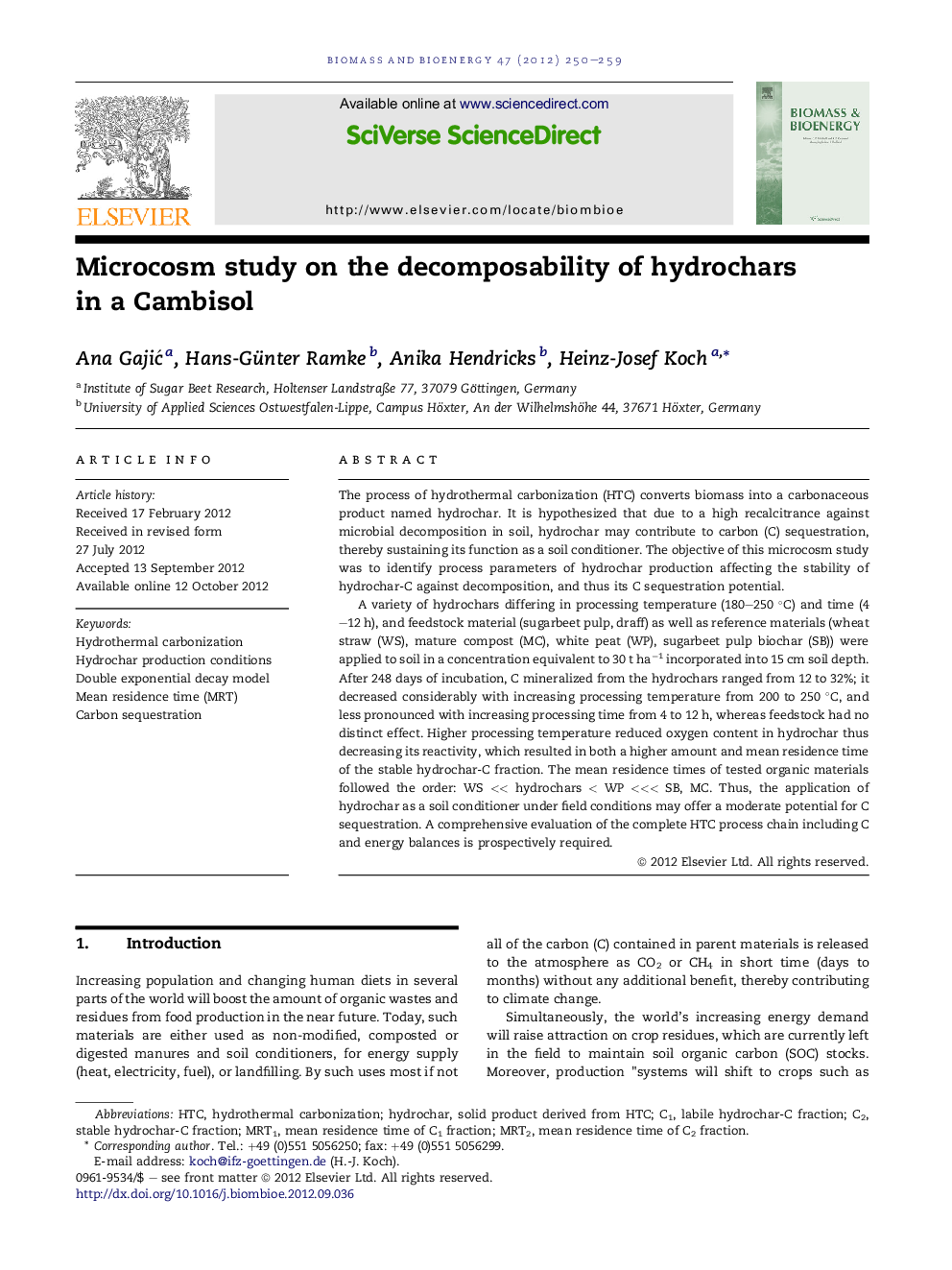| Article ID | Journal | Published Year | Pages | File Type |
|---|---|---|---|---|
| 677280 | Biomass and Bioenergy | 2012 | 10 Pages |
The process of hydrothermal carbonization (HTC) converts biomass into a carbonaceous product named hydrochar. It is hypothesized that due to a high recalcitrance against microbial decomposition in soil, hydrochar may contribute to carbon (C) sequestration, thereby sustaining its function as a soil conditioner. The objective of this microcosm study was to identify process parameters of hydrochar production affecting the stability of hydrochar-C against decomposition, and thus its C sequestration potential.A variety of hydrochars differing in processing temperature (180–250 °C) and time (4–12 h), and feedstock material (sugarbeet pulp, draff) as well as reference materials (wheat straw (WS), mature compost (MC), white peat (WP), sugarbeet pulp biochar (SB)) were applied to soil in a concentration equivalent to 30 t ha−1 incorporated into 15 cm soil depth. After 248 days of incubation, C mineralized from the hydrochars ranged from 12 to 32%; it decreased considerably with increasing processing temperature from 200 to 250 °C, and less pronounced with increasing processing time from 4 to 12 h, whereas feedstock had no distinct effect. Higher processing temperature reduced oxygen content in hydrochar thus decreasing its reactivity, which resulted in both a higher amount and mean residence time of the stable hydrochar-C fraction. The mean residence times of tested organic materials followed the order: WS << hydrochars < WP <<< SB, MC. Thus, the application of hydrochar as a soil conditioner under field conditions may offer a moderate potential for C sequestration. A comprehensive evaluation of the complete HTC process chain including C and energy balances is prospectively required.
► Increasing processing temperature enhances stability of hydrochar in soil. ► Feedstock and processing time has only little effect on decomposability. ► Lower O/C ratio of hydrochar indicates decreased decomposability. ► The O/C ratio is a function of processing temperature. ► MRT of hydrochars is up to 5 times higher compared to wheat straw.
